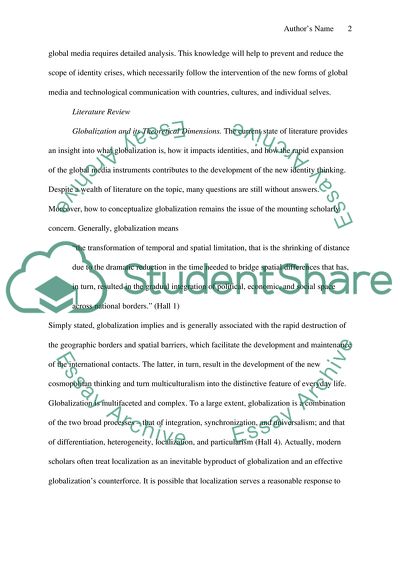Cite this document
(“Media globalization's effect on the creation of a hybrid identity and Research Paper”, n.d.)
Media globalization's effect on the creation of a hybrid identity and Research Paper. Retrieved from https://studentshare.org/miscellaneous/1573916-media-globalizations-effect-on-the-creation-of-a-hybrid-identity-and-the-use-of-the-internet-to-project-this-simulated-image-of-self
Media globalization's effect on the creation of a hybrid identity and Research Paper. Retrieved from https://studentshare.org/miscellaneous/1573916-media-globalizations-effect-on-the-creation-of-a-hybrid-identity-and-the-use-of-the-internet-to-project-this-simulated-image-of-self
(Media globalization'S Effect on the Creation of a Hybrid Identity and Research Paper)
Media globalization'S Effect on the Creation of a Hybrid Identity and Research Paper. https://studentshare.org/miscellaneous/1573916-media-globalizations-effect-on-the-creation-of-a-hybrid-identity-and-the-use-of-the-internet-to-project-this-simulated-image-of-self.
Media globalization'S Effect on the Creation of a Hybrid Identity and Research Paper. https://studentshare.org/miscellaneous/1573916-media-globalizations-effect-on-the-creation-of-a-hybrid-identity-and-the-use-of-the-internet-to-project-this-simulated-image-of-self.
“Media globalization'S Effect on the Creation of a Hybrid Identity and Research Paper”, n.d. https://studentshare.org/miscellaneous/1573916-media-globalizations-effect-on-the-creation-of-a-hybrid-identity-and-the-use-of-the-internet-to-project-this-simulated-image-of-self.


